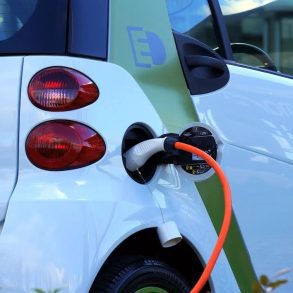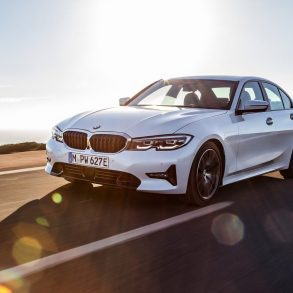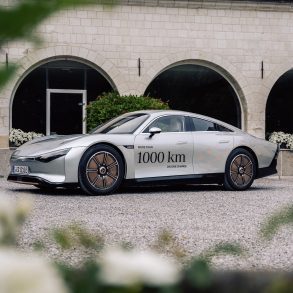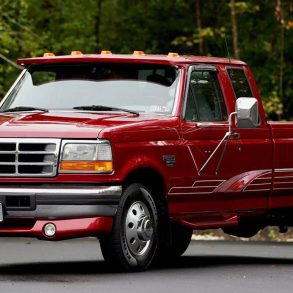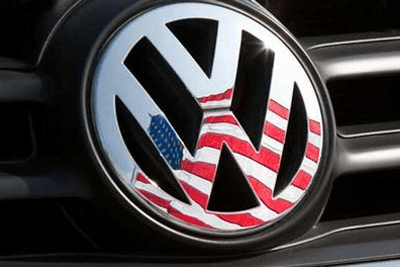 I’ve just tried to argue once again why launching Skoda in the US would be a smart move, but I’m sure at least one of our esteemed readers will raise the following counterarguments and I’d have to fully agree with him/her, so here’s why I think why VW shouldn’t bring Skoda to North America: the market is already saturated and the upcoming changes that will affect the automotive industry will give Volkswagen an opportunity to redeem itself. None of these points were stipulated by the unnamed VW board member who was quoted to say it wouldn’t be a good idea to bring Skoda to the US anyway.
I’ve just tried to argue once again why launching Skoda in the US would be a smart move, but I’m sure at least one of our esteemed readers will raise the following counterarguments and I’d have to fully agree with him/her, so here’s why I think why VW shouldn’t bring Skoda to North America: the market is already saturated and the upcoming changes that will affect the automotive industry will give Volkswagen an opportunity to redeem itself. None of these points were stipulated by the unnamed VW board member who was quoted to say it wouldn’t be a good idea to bring Skoda to the US anyway.
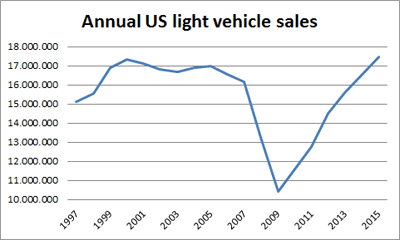 Firstly, at close to 17,5 million sales in 2015, the US market reached a new sales record last year but the growth rate of recent years has significantly slowed in 2016 and sales are projected to remain stable this year and the next few years before slowly declining again, as the market has reached its saturation point. This means that in order to gain volume and market share, some brands will start to offer discounts and incentives, perhaps stimulating others to follow in order to protect their share. This will erode profits for everyone, making it a very challenging environment to launch an all-new brand. Even if the manufacturers can hold the line on incentives, as they’ve promised they would, Skoda would have to steal sales from established brands with generations of faithful customers and boatloads of brand equity, which won’t be an easy task, especially if it offers everything they already offer, but in a different package. The only way to successfully enter such a difficult market environment would be to offer something completely extraordinary, to which the existing players don’t have an answer yet, in the way Tesla has done with its luxury EVs. This also brings me to my second point:
Firstly, at close to 17,5 million sales in 2015, the US market reached a new sales record last year but the growth rate of recent years has significantly slowed in 2016 and sales are projected to remain stable this year and the next few years before slowly declining again, as the market has reached its saturation point. This means that in order to gain volume and market share, some brands will start to offer discounts and incentives, perhaps stimulating others to follow in order to protect their share. This will erode profits for everyone, making it a very challenging environment to launch an all-new brand. Even if the manufacturers can hold the line on incentives, as they’ve promised they would, Skoda would have to steal sales from established brands with generations of faithful customers and boatloads of brand equity, which won’t be an easy task, especially if it offers everything they already offer, but in a different package. The only way to successfully enter such a difficult market environment would be to offer something completely extraordinary, to which the existing players don’t have an answer yet, in the way Tesla has done with its luxury EVs. This also brings me to my second point:
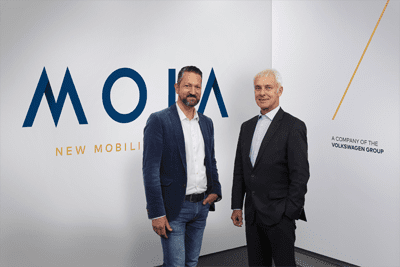 The automotive industry is facing a lot of changes in the near future, and it’s feeling the heat of disruptive technologies and firms offering solutions in the fields of electrification, autonomous driving, connected mobility and the sharing economy. Most of the largest automakers are already taking steps to change their business plan from just producing cars to becoming the mobility providers of the future. Just last week, VW Group has announced it will follow this strategy as well, including the launch of a new “brand” Moia as part of its aggressive push into electric vehicles and new technology services in an attempt to move on from its diesel emissions scandal. Volkswagen has provided funding for Moia in the “three-figure millions” of euros for the next few years and will also seek outside funding to help it grow. Revenue is aimed to be “in the region of a couple of billions” in two to four years with the brand’s biggest markets Europe, the US and China. According to its CEO Ole Harms, Moia’s goal is to be one of the top three mobility services in 10 years.
The automotive industry is facing a lot of changes in the near future, and it’s feeling the heat of disruptive technologies and firms offering solutions in the fields of electrification, autonomous driving, connected mobility and the sharing economy. Most of the largest automakers are already taking steps to change their business plan from just producing cars to becoming the mobility providers of the future. Just last week, VW Group has announced it will follow this strategy as well, including the launch of a new “brand” Moia as part of its aggressive push into electric vehicles and new technology services in an attempt to move on from its diesel emissions scandal. Volkswagen has provided funding for Moia in the “three-figure millions” of euros for the next few years and will also seek outside funding to help it grow. Revenue is aimed to be “in the region of a couple of billions” in two to four years with the brand’s biggest markets Europe, the US and China. According to its CEO Ole Harms, Moia’s goal is to be one of the top three mobility services in 10 years.
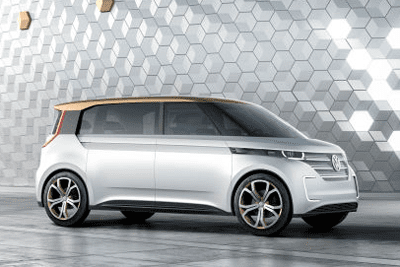 So what does this mean for Volkswagen in the US? It means that Volkswagen has an opportunity to reshape its brand to become a mass-market leader in vehicle electrification and mobility services. The first step it has already taken was the decision to abandon its “clean” diesel push in the United States, and to shift its focus to the future. Moia will also offer an opportunity to lock in consumers who are not currently VW buyers, or even car buyers at all, within the VW Group. The brand will start by offering an Uber-like service using VW brand cars, but will eventually launch an autonomous vehicle on the Volkswagen’s MEB electric platform.
So what does this mean for Volkswagen in the US? It means that Volkswagen has an opportunity to reshape its brand to become a mass-market leader in vehicle electrification and mobility services. The first step it has already taken was the decision to abandon its “clean” diesel push in the United States, and to shift its focus to the future. Moia will also offer an opportunity to lock in consumers who are not currently VW buyers, or even car buyers at all, within the VW Group. The brand will start by offering an Uber-like service using VW brand cars, but will eventually launch an autonomous vehicle on the Volkswagen’s MEB electric platform.
While still a risky bet, offering no guarantees of success, especially against technology giants like Google and Uber, not to mention almost every other major automaker aiming for the same outcome, it is a more future-oriented approach and perhaps the only chance for VW to leave the scandals behind and finally become more than a niche brand in the US. Just another brand that can only stand out by great marketing or low pricing isn’t going to cut it in perhaps the most competitive market in the world. A fresh way of thinking is needed in the automotive industry, and traditional carmakers will have to face the winds of change as the future of mobility looks electrified, connected, (semi-)autonomous and shared.




